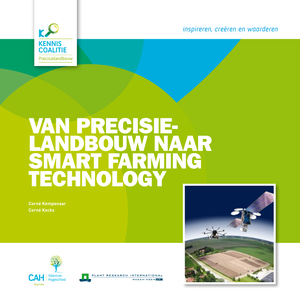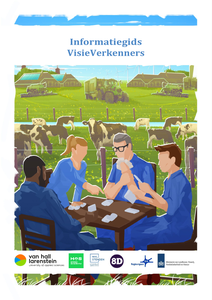Transforming our societies towards a more sustainable future requires a good understanding of their citizens. This is of particular importance when considering the phenomenon of population ageing, which means that older people will constitute a significant share of society. The imperative for sustainable development arises from escalating concerns over environmental issues, necessitating tailored interventions for the heterogeneous group of older individuals. In this research, data collected using the SustainABLE-8 in Poland, North Macedonia, Romania, the Netherlands and Israel (N = 2318) were analysed in order to identify European typologies and their drivers for - and contributions to - sustainable practices. Several items of the SustainABLE-8 concerned (limiting) energy use at home as well as attitudes towards the use of sustainable energy and climate change. The study identified the existence of four major typologies, which differ in terms of their financial position, beliefs and behaviours in relation to the environment. These typologies cover 1) inactive people with limited financial resources, 2) inactive believers, 3) active and belief-driven people with limited financial resources, and 4) active and belief-driven people with financial resources. Each typology is separately discussed in terms of its specificities and ways how local governments could support their pro-environmental behaviours. The research is summarised with practical implications for industry, policymakers and environmental, social and governance strategies.
MULTIFILE

Efforts to create age-friendly cities progressively intersect with goals for environmental sustainability. The older people’s beliefs, behaviours and financial aspects regarding environmental sustainability in their lives are an understudied topic and not well understood. Therefore, a representative survey was conducted using the psychometrically sound and comprehensive SustainABLE-16 Questionnaire. A total of 388 respondents, who were community-dwelling older people in The Hague, filled out the survey completely. Overall, the mean scores on the SustainABLE-16 for finance- and environment-driven pro-environmental behaviours, beliefs and the financial position among older people were positive for all districts of The Hague. Using the outcomes of the survey, a total of six unique typologies were identified through a two-step process combining hierarchical and k-means cluster analyses. These six typologies are 1 the staunch non-believers, 2 the finance-driven non-believers, 3 the everyday individuals, 4 belief-driven people with limited financial resources, 5 believing non-responders, 6 the affluent and engaging people. These six typologies each require different approaches from policymakers. Sustainabilityrelated policies should ideally focus on groups with high scores for pro-environmental behaviours but who have shortcomings in knowledge how to improve one’s everyday lifestyle and groups who lack the necessary financial means to live a more sustainable life.
MULTIFILE

Podcastserie ENTRANCE ONDER DE LOEP (in het kort):Groene waterstof’ kan een belangrijke rol spelen in de energietransitie. De waterstof, geproduceerd met hernieuwbare stroom, kan dienen als energiedrager om elektriciteit op te slaan of als schone brandstof voor auto’s, vrachtwagens en bussen. Ook kan waterstof een grondstof zijn voor de industrie en gebruikt worden voor het produceren van warmte. Het lectoraat Energietransitie is met lector Waterstoftoepassingen Jan-jaap Aué betrokken bij verschillende onderzoeken naar toepassingen van groene waterstof in een duurzame energievoorziening.
LINK
Door de voortdurend stijgende kosten voor o.a. brandstof, grondstoffen en personeel is precisielandbouw feitelijk voorwaardelijk aan het worden voor elk type landbouwer en elke bedrijfsgrootte. Daarnaast is er vanuit de samenleving een sterk groeiende vraag naar meer en kwalitatief hoogwaardig voedsel, in combinatie met een minimale milieubelasting en een maximale zorg voor veiligheid en welzijn. Op lange termijn dient precisielandbouw de landbouw naar the next level te brengen. Dan wordt het Smart Farming Technology waarbij een integrale benadering van alle bedrijfsmatige facetten gecombineerd wordt tot een duurzame precisie bedrijfsvoering.
DOCUMENT

Deze gids is een handig hulpmiddel voor het spel VisieVerkenners. In de gids staan uitleg over verschillende bedrijfsvisies, succesfactoren en maatregelen. Ook wordt uitgelegd hoe de punten worden toegekend aan maatregelen en bedrijfsvisies. Je kunt deze gids gebruiken als je meer wilt weten over bepaalde maatregelen en waarom een maatregel een bepaalde score zou kunnen krijgen. Ook helpt de gids je om maatregelen te vinden die goed passen bij jouw bedrijfsvisie. Kortom, deze gids geeft extra uitleg en verdieping tijdens en na het spel.
DOCUMENT

Deze gids is een handig hulpmiddel voor het spel VisieVerkenners. In de gids staan uitleg over verschillende bedrijfsvisies, succesfactoren en maatregelen. Ook wordt uitgelegd hoe de punten worden toegekend aan maatregelen en bedrijfsvisies. Je kunt deze gids gebruiken als je meer wilt weten over bepaalde maatregelen en waarom een maatregel een bepaalde score zou kunnen krijgen. Ook helpt de gids je om maatregelen te vinden die goed passen bij jouw bedrijfsvisie. Kortom, deze gids geeft extra uitleg en verdieping tijdens en na het spel.
DOCUMENT

Diverse onderzoeken hebben aangetoond dat producenten aanzienlijke kosten- en servicevoordelen kunnen behalen door betere samenwerking met logistieke dienstverleners. Daarnaast geven de huidige ontwikkelingen binnen de chemie voldoende aanleiding om de samenwerking op logistiek gebied te verbeteren. Hoewel dit door de praktijk wordt onderkend, wordt het potentieel van logistieke samenwerking tot op heden echter niet verzilverd.
DOCUMENT

In dit boekje leest u de essentie van de tekst die op vrijdag 2 november 2012 in Leeuwarden is uitgesproken in het kader van de inauguratie van de lector Health & Food bij Hogeschool Van Hall Larenstein. De tekst is gebaseerd op de rede zoals deze van tevoren was uitgeschreven. De middag van de inauguratie had een interactief karakter en in lijn daarmee is de rede op geïmproviseerde wijze gepresenteerd (de hier gepresenteerde tekst is dus ietsje anders dan in werkelijkheid uitgesproken).
DOCUMENT

DSM staat internationaal in hoog aanzien war betreft haar streven naar duurzaamheid. In 2009 zijn ze in de categorie chemie eerste geworden van de Dow Jones Sustainability World Index. Vol trots vertelt Ceo Sybesma dan ook dat het nieuwe produkt een kunststof is die bij hoge temperaturen niet vervormt en niet in brand vliegt. Daardoor is dit materiaal geschikt als vervanger van metaal en keramiek in motoren van auto's. Door het lage soortelijke gewicht van de kunststof weegt de auto uiteindelijk minder wat natuurlijk brandstof bespaart. Ziezo dus is het goed voor het milieu. Is deze kunststof echter wel duurzaam volgens de principes van Craddle tot Craddle?? Is het volledig zonder kwaliteitsverlies her te gebruiken of is het volledig biologisch afbreekbaar? Daarover laat Sybesma zich echter niet uit. Er komt dus meer bij kijken om maatschappelijk verantwoord te ondernemen.
DOCUMENT